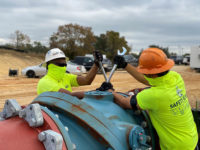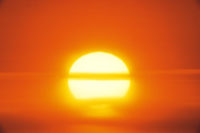The most common is heat rash. You get it when your sweat isn’t evaporating properly, leaving your neck or the insides of your elbows with itchy red bumps or patches. When that happens, it’s time to dry off and cool down.
Another common problem is heat cramps, which start when hard-working muscles get dehydrated. These pains will go away within the hour if you take a break, cool off, and drink something, like a sports drink, that will replenish your fluids, salt levels, and electrolytes.
Heat cramps can be a symptom of heat exhaustion, which is a bit more serious. With heat exhaustion you may feel dizzy, nauseated, and fatigued. Your skin will be clammy. You may begin sweating heavily.
This is your body’s last-ditch effort to avoid heat stroke, the most serious threat. When your body can no longer regulate its temperature, you can experience blinding headaches, confusion, hallucinations, hot, dry skin or profuse sweating, slurred speech, or chills despite running a high temperature. Heat stroke is life-threatening and requires immediate medical attention. After calling 911, the top priority is cooling the body down. Someone suffering from heat stroke needs to be promptly moved to a cool, shaded area, soaked with water, and fanned.
It’s better to avoid any of these heat-related illnesses rather than treat them, so here are some prevention tips.
If possible, schedule your heaviest work for the coolest parts of the day and your breaks for the hottest parts.
Rotate work on the most physically demanding projects.
Find shade throughout the day by working on the western side of the site as the sun rises and on the eastern side as the sun sets.
Wear light-colored, loose-fitting clothing that breathes well.
Take more breaks on hotter or more humid days, and give yourself time to acclimatize to rising temperatures.
Drink enough that you don’t get thirsty (1 cup every 15-20 minutes), and avoid caffeine, alcohol, and lots of sugar.
Enjoy the sunshine, but protect yourself from heat-related illnesses that are all-too-common in the summer.


